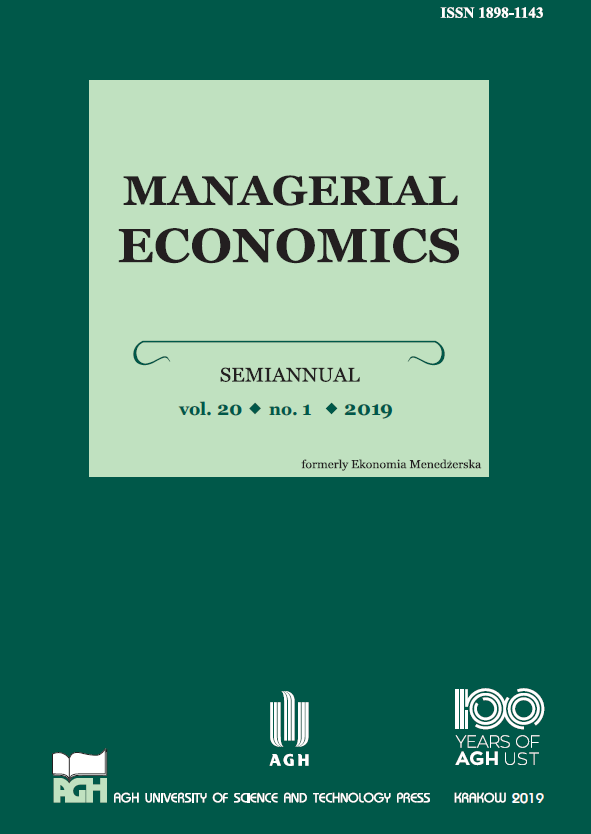The analysis of liberalisation of the electricity market in Slovenia
DOI:
https://doi.org/10.7494/manage.2019.20.1.7Abstract
The purpose of this paper has been to investigate wholesale-to retail-sale electricity supply management in Slovenia. The rapid increase in electricity supply in Slovenia has been determined
by increasing industry, public and household electricity demands. The paper analyses structures and dynamics in wholesale-to-retail supply chain structures and management that are important for purchases of electrical energy by electricity distribution retailers. By using Lorenz’s curve and Gini’s coefficient of concentration, there is found to be a relatively high degree of concentration of wholesale electricity suppliers in the delivery of electrical energy to the retail electricity distribution enterprises. Whereas the number of the wholesale electricity suppliers has increased, the great majority of them hold with relatively small market shares vis-à-vis the large traditional wholesale electricity supplier. The electricity supply by smaller electricity producers is largely based on renewable sources of energy, which also depends on the weather conditions.
The empirical evidence suggests that wholesale-to-retail electricity supply structures are shifting slowly from a monopoly market structure towards greater competition with the characteristics
of product differentiation and market segmentation. The regression analysis for the electricity price formation for the retail electricity distribution enterprise confirms the significance of the
costs for the purchased electricity, expenses for wages and for taxes. The multivariate factor analysis confirms the importance of recognition and business trust in the wholesale-to-retail-sale
electricity supply chain management.
Downloads
Downloads
Published
Issue
Section
License
Download, sign, scan and attach copyright statement form.

